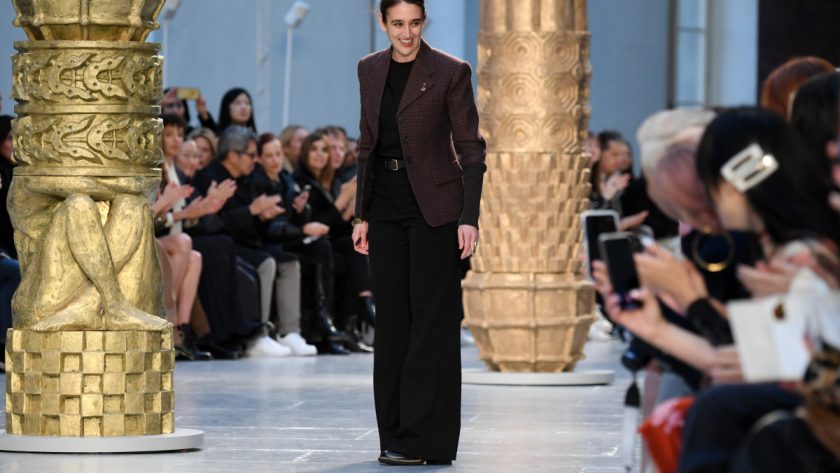Photo: Pascal Le Segretain/Getty Images
These are the stories making headlines in fashion on Wednesday.
Natacha Ramsay-Levi on what comes after losing your dream job
French designer Natacha Ramsay-Levi has worked for houses such as Balenciaga, Louis Vuitton and Chloé, but now she’s launching a new range called NRL for ECCO. Known for her cool style, Ramsay-Levi was creative director of Chloé from 2017 to 2020 and introduced a new edge to the brand with moto jackets, brown corduroy suiting and pointy boots. After spending some time to regroup post-Chloé, Ramsay-Levi knew what she wanted next, to “work with people who I love … Believe in what I make. Of course there’s a part of risk in everything. But the risk has to be something we believe in,” Ramsay-Levi told Marie Claire. Now, she’s working with Danish footwear brand ECCO to make her French Girl Chic style more accessible and more affordable while maintaining the same level of quality. {Marie Claire}
Inside Giorgio Armani’s succession plan
Giorgio Armani is the CEO and effectively sole shareholder of his business, but with no children to pass the business onto, there is speculation surrounding what will happen to Armani’s empire. Reuters reviewed a 2016 document from a meeting to adopt new bylaws for the company that outlines governing principles for Armani’s heirs, navigating a potential stock market listing (not until five years after his death) and the Armani look itself. Armani’s heirs include his sister, three other family members working in the business, long-term collaborator Pantaleo Dell’Orco and a charitable foundation. The bylaws divide the company’s share capital into six categories with different voting rights and powers, and they also set the process for how the board will appoint future women’s and men’s style directors. {Business of Fashion/paywalled}
How regional brands go global
Brands based outside of fashion hubs like Paris and New York often struggle to get recognition past their regional markets, but post-pandemic digitalization had made it easier for brands to reach out to buyers directly. That’s exactly what designer Spencer Badu did for his Autumn/Winter 2018 collection: He rented an Airbnb, reached out to buyers himself and invited them to view his genderless ready-to-wear line. Ssense placed one of the brand’s first wholesale orders, and Badu had found a way to grab the fashion world’s attention without having to relocate to Paris or New York. “When you’re not coming from a city with a long history of famous designers and loads of well-known stores, you have to find a way to carve your own lane,” Badu told Business of Fashion. As a result of the pandemic, many brands held virtual appointments for buyers and VIP shoppers, which has helped level the playing field for smaller, regional brands. {Business of Fashion/paywalled}
Never miss the latest fashion industry news. Sign up for the Fashionista daily newsletter.



